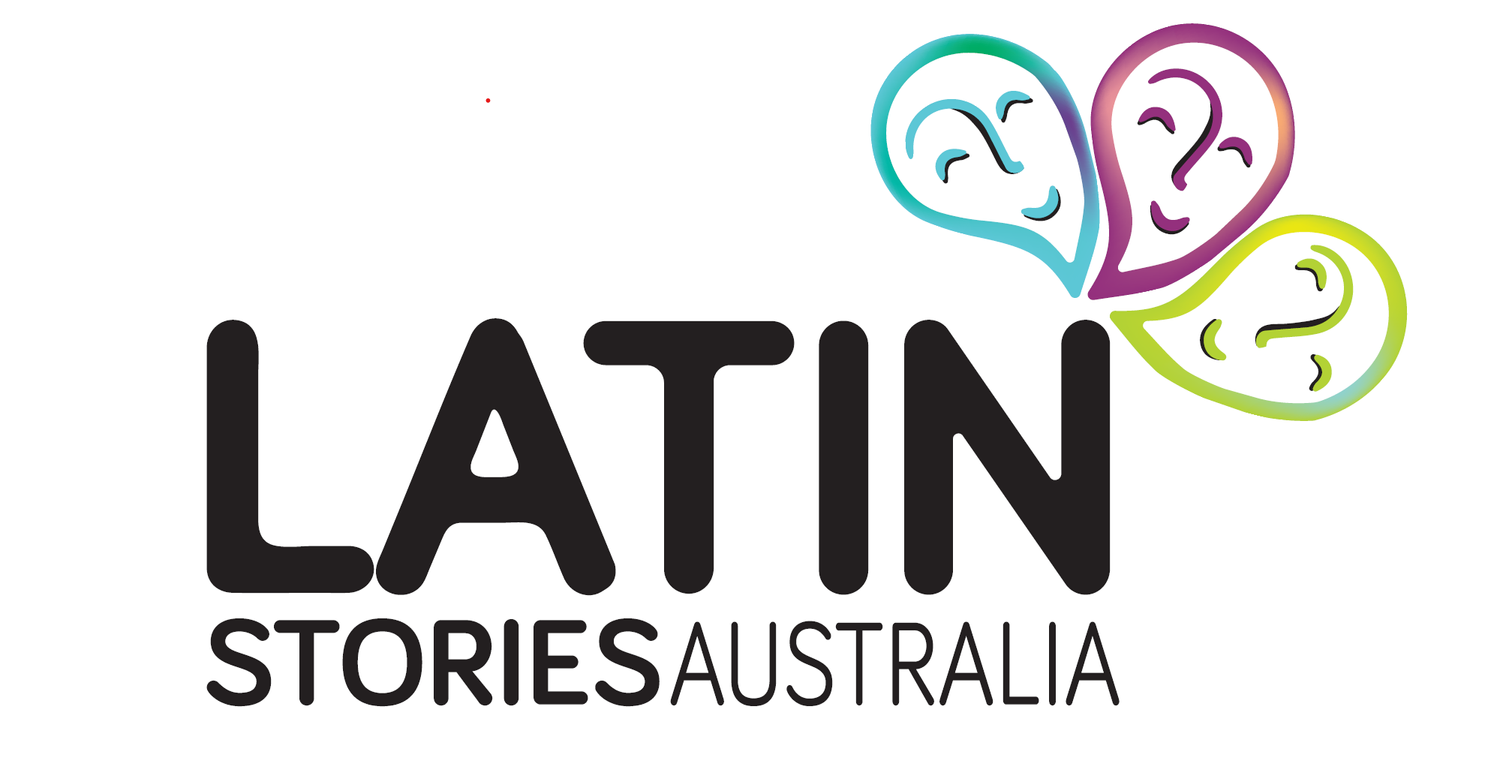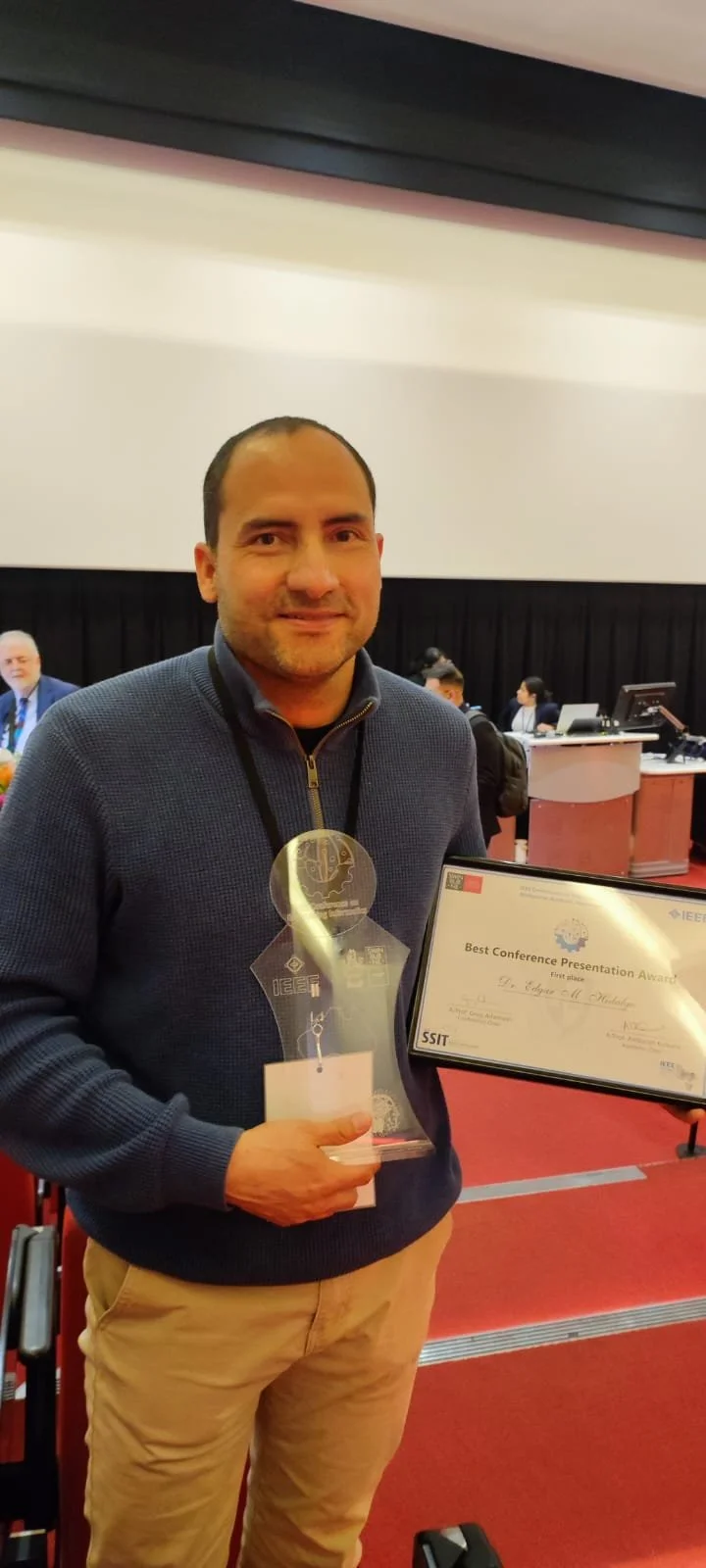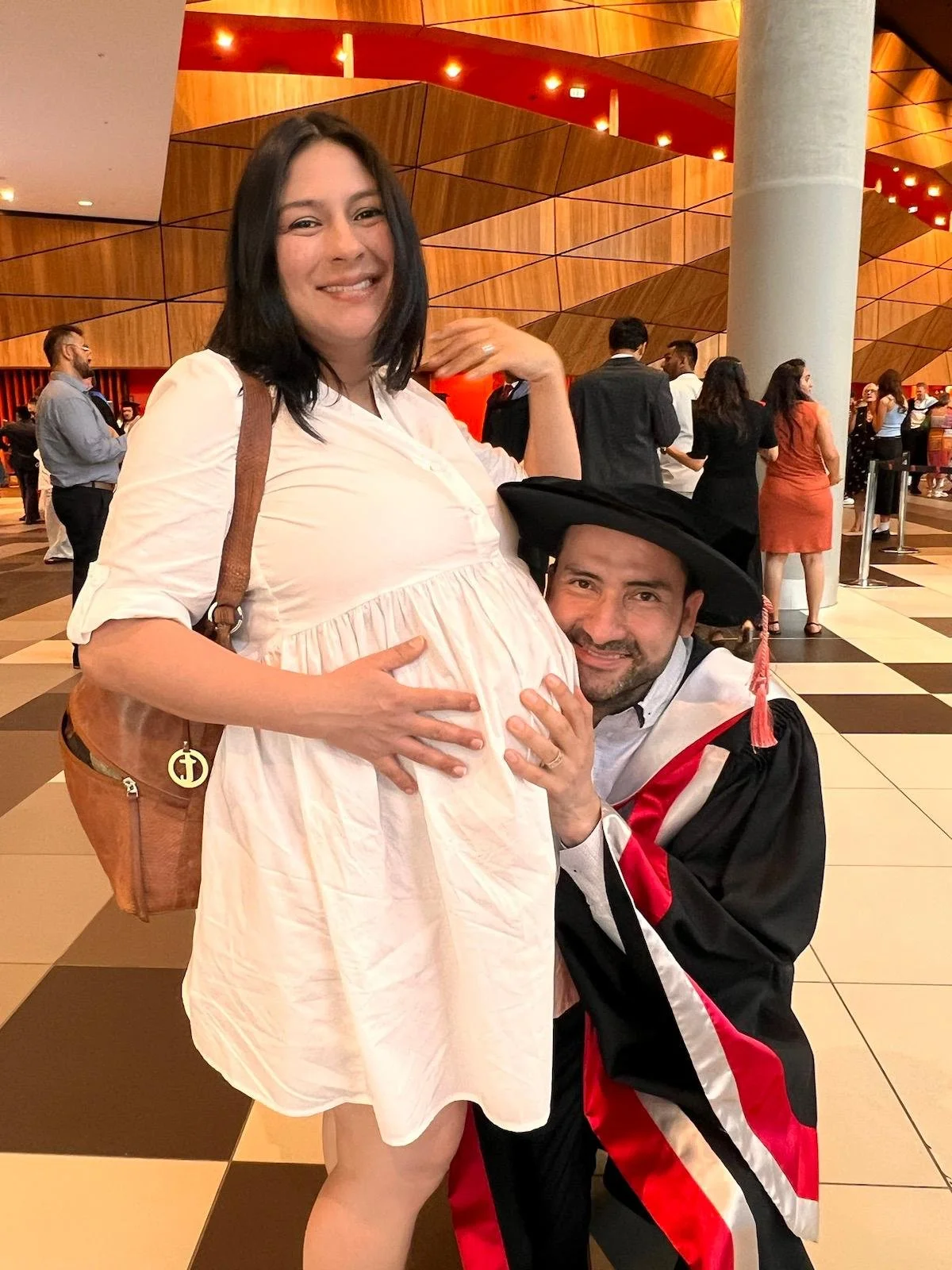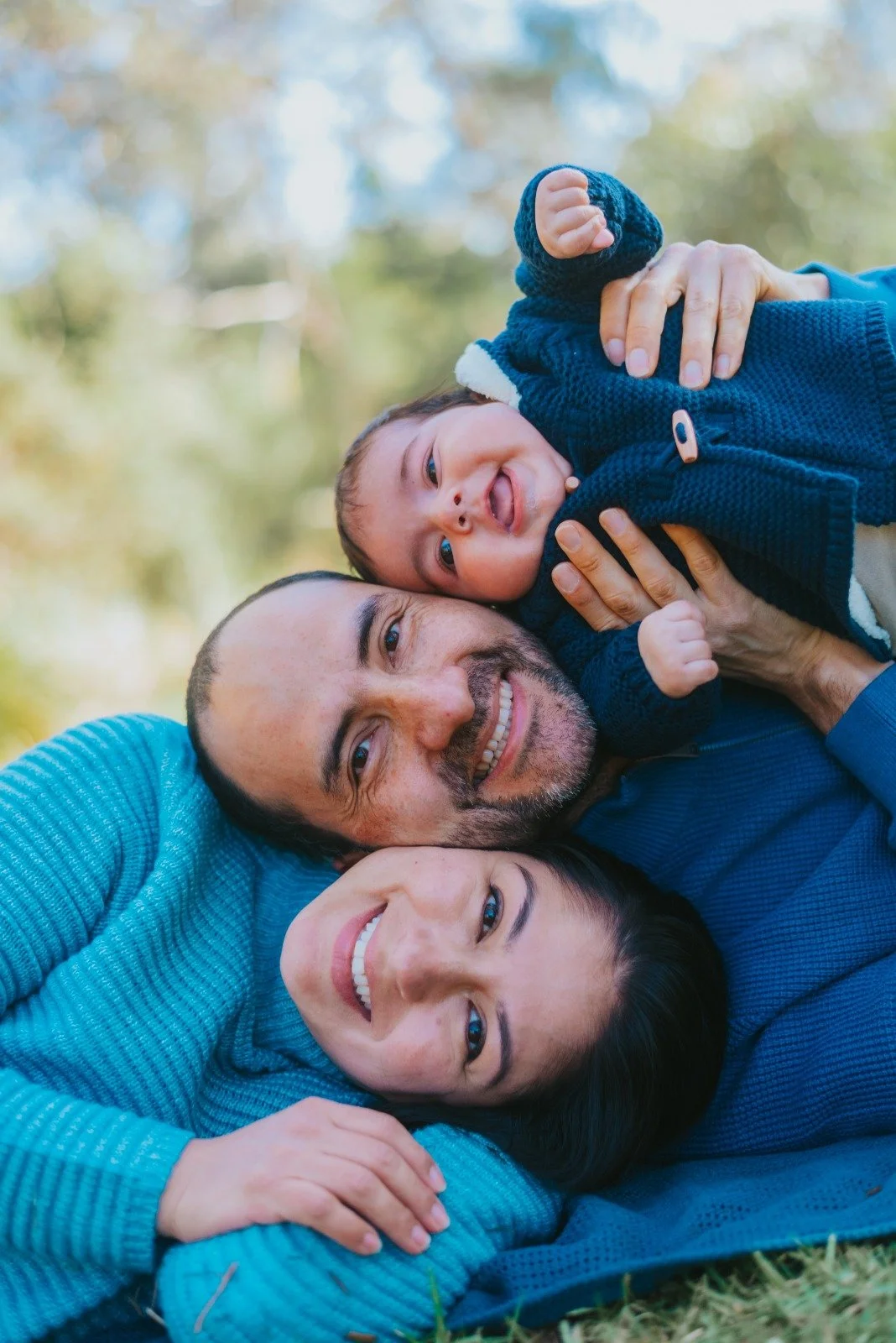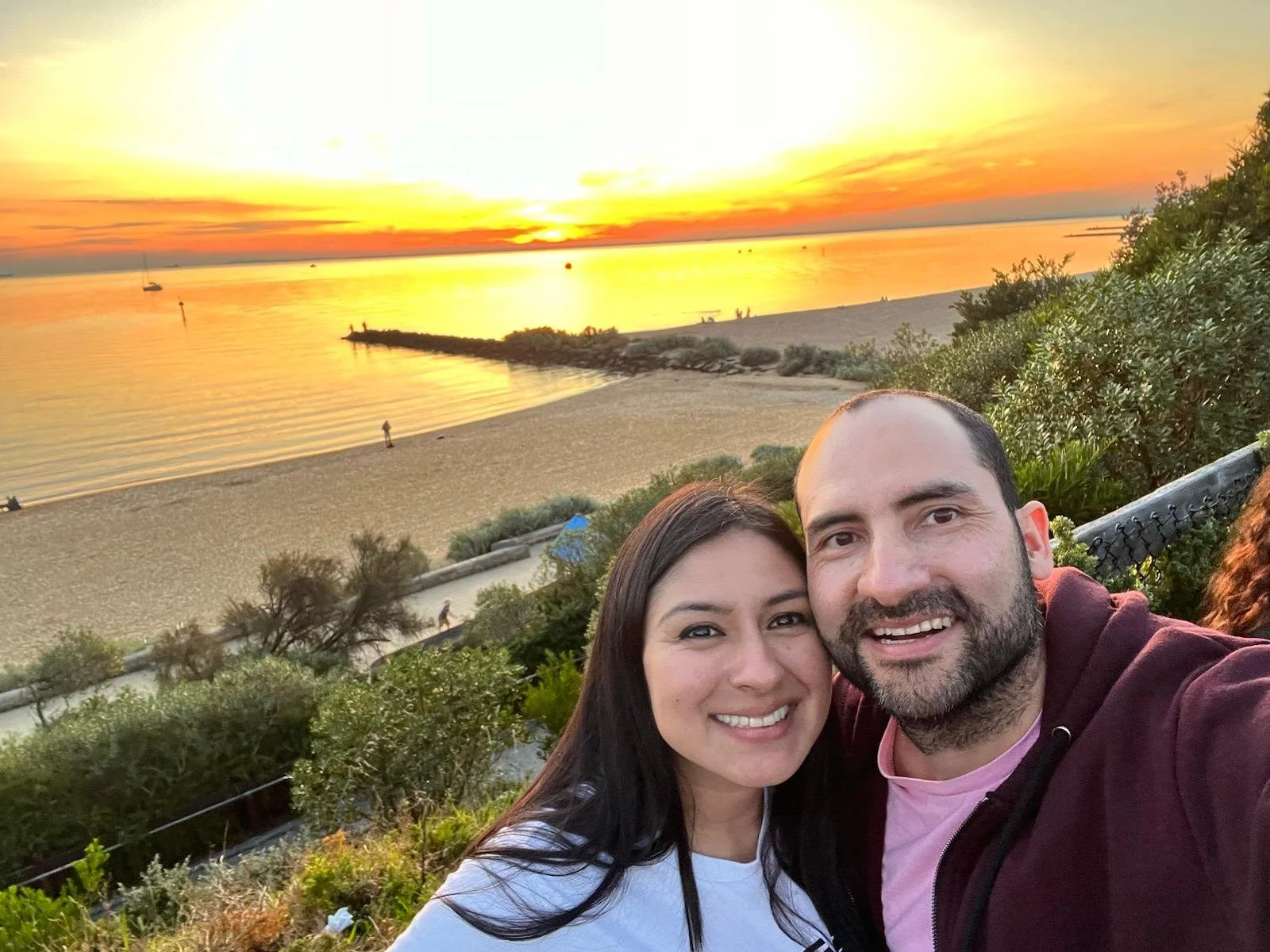Mauricio Hidalgo
“Australia is rich with opportunities for those who are open to them — and often, the unexpected becomes the moment that allows you to shine”
Mauricio Hidalgo
Occupation: Fellow Researcher at Swinburne University of Technology
State of Residency: Victoria
Favourite Place in Australia: Wilsons Promontory National Park
Upon Arrival: I was amazed by the different languages I heard on the train; the cultural diversity in one city is something truly special.
Story edited by Lucy Coulson and digital edition by Johany Ortiz
Holding a PhD in Robotics and trained as an electronics engineer, Mauricio has long been driven by a fascination with how technology can extend human capability. Working at the intersection of engineering and medicine, he develops systems that make remote healthcare possible. At Swinburne University of Technology, he leads the development of a teleoperated robotic system for remote cardiac ultrasound, enabling echocardiographers to perform examinations from a distance. His goal is to improve access to specialist cardiac care for people in rural and remote Australia, where long travel and wait times, often up to six months, can delay essential diagnosis and treatment. His system has already passed testing with 40 participants and is now progressing to clinical trials at the Alfred Centre in Melbourne within the Imaging Research Department at the Baker Heart and Diabetes Institute.
Mauricio holding Best Conference Presentation Award
Mauricio’s research journey has been marked by important opportunities and recognition. He began his PhD in 2019 under a SUPRA Scholarship jointly supported by Swinburne University of Technology and the Baker Heart and Diabetes Institute. In 2024, he was named a Highly Commended Researcher in Swinburne’s School of Engineering Research Excellence Awards. His work has also secured competitive funding, including the AEA Ignite Grant from the Australian Government’s Department of Education, Swinburne’s Proof-of-Concept funding, and a Seed Grant from the Baker Institute. Most recently, he received the Best Conference Presentation Award at the 2025 IEEE Conference on Engineering Informatics for a paper detailing a key component of his ongoing research.
Alongside his research, Mauricio is committed to education and outreach. He has taught in both Australia and Colombia and has supported STEM and technology programs for young people in underserved regions of Colombia. At Swinburne, he also serves as a Sessional Tutor in the Control Engineering Laboratory, helping undergraduate students apply theoretical control systems concepts through hands-on experiments that prepare them for real-world engineering practice.
Mauricio’s contribution to Australia lies in advancing medical robotics and improving healthcare accessibility. By leading the development of a teleoperated robotic platform for cardiac ultrasound, he is helping address the shortage of medical specialists in regional and remote communities. His work strengthens healthcare equity while advancing Australia’s leadership in medical technology research and translation. Beyond research, he contributes through teaching, mentoring, and fostering collaborations across academia, healthcare, and industry.
TELL US YOUR STORY
My journey in Australia began in February 2017, when my wife and I arrived to study English for nine months. We were full of excitement and curiosity, eager to learn the language, experience the culture, and start a new chapter together. I still remember my surprise at the long summer daylight hours, something I had never experienced in Colombia.
Mauricio and his family at his PhD graduation ceremony.
With our savings, we rented a small room in Williams Landing, soon realising it was much farther from the city centre than we expected, but it was a good start. Finding part-time work with limited English was difficult. My wife found a job within a week, while it took me more than three. I hoped to work in engineering, but few companies hired part-time. Refusing to give up, I focused on 3D-printing businesses and discovered that a Sydney-based company was opening a shop in Melbourne. After several attempts to deliver my CV, I finally slid it under the door, and three days later, received an interview invitation. Despite my limited English, the owner was patient and offered me a part-time position. Since he lived in Sydney, he asked me to manage the shop alone. His trust helped me gain confidence, and soon I was even running workshops. It was a challenge, a wonderful experience, and a turning point in my journey.
In 2018, I began a Diploma in Project Management to complement my engineering background. Around that time, my wife met a Swinburne University professor leading a 3D-printing robotics project. After hearing about my experience, he invited me to the lab, and soon after I joined as a volunteer researcher. In 2019, as the project was ending, an opportunity arose to apply for a PhD scholarship. With his encouragement, I applied and was awarded a full scholarship to study robotics. I began with a mix of excitement and fear, knowing it would be one of the most demanding chapters of my life.
Mauricio celebrating life with his family.
In 2020, a short trip to Colombia became a 20-month stay when the pandemic closed borders. Determined to continue, I completed most of my PhD remotely, turning my brother’s small room into a makeshift lab. Working across time zones with limited resources tested my resilience, but I found ways to keep progressing. When Australia reopened, my wife and I returned with renewed purpose. I completed my PhD in 2024, a milestone made possible through perseverance and the unwavering support of my wife.
Shortly after, our son was born, bringing a new sense of meaning to everything I do. Becoming a father has reinforced the importance of resilience, love, and community. I am deeply grateful for the friends and generous people in Australia who have supported us throughout our journey.
I now work on integrating Artificial Intelligence into the teleoperated cardiac ultrasound system, enabling specialists to perform high-quality imaging from a distance and improving diagnostic access for remote communities. The system is progressing toward clinical trials at the Baker Heart and Diabetes Institute. In parallel, our research team is exploring the creation of a start-up to scale and commercialise the technology, expanding its impact across Australia’s healthcare sector.
CHALLENGES
Distance from family – I am the ninth of ten siblings, and I have always been very close to my brothers and sisters, so being far from them has been one of the biggest challenges. Although technology helps us stay connected, video calls are not the same as being together and sharing those special everyday moments.
Lack of professional networks – Over the years, and especially after studying in Australia, building new professional connections has become easier. However, at the beginning it was a real barrier and created pressure when trying to find a job aligned with my skills.
Renting a house for the first time – Starting out in Australia without a rental history or local references made it difficult to prove that I was a reliable tenant. I remember visiting many places and applying several times without success. Fortunately, we met a lovely Latin couple who were transferring their lease, and thanks to them we secured our very first rental agreement in Australia.
CONTRASTS AND SIMILARITIES
Latin family culture – We Latins are more family-oriented. Staying close to our families is at the heart of life in Latin America; we celebrate everything, big or small, as a way to connect and share with the people we love. Celebration is part of who we are; it’s in our blood. Over the years, I’ve noticed that many Australians appreciate this aspect of our culture, especially because their society is more independent, and young people often leave home soon after finishing high school.
A more direct approach – I have also learned that Australians tend to be direct and straightforward. They say what they think without hesitation, something I admire. As Latinos, we often tell a long story or take time to express what we feel. I like the Australian way, if you have something to say, speak openly, share your thoughts, and express your feelings with honesty.
Exploring Australia and embracing work-life balance.
Better work-life balance – Another difference is the work-life balance culture. In Latin America, long hours are common, often without compensation, and working beyond the schedule is almost expected. We are hardworking by nature, but the balance between work and personal life is not always prioritised. In Australia, work-life balance is considered essential, and companies respect that.
PIECE OF ADVICE
Connect with people – Being far from our home countries and families can be challenging, but building connections with Australians and people from other cultures makes the journey much easier. If you truly want to understand the culture and discover new opportunities, stay open, meet new people, and create strong, meaningful relationships.
You are not alone – Migrating to a new country with different values, traditions, and languages can feel overwhelming, but there are always people with similar experiences and wonderful communities ready to support you. If you need help, don’t hesitate to ask, you’ll always find someone willing to lend a hand, especially in Australia.
Be open to new opportunities – Australia is full of possibilities for those who are willing to embrace them. You never know when something unexpected will appear and give you the chance to shine.
IN THE NEXT FEW YEARS
Alongside his wife and son, Mauricio hopes to continue strengthening their life and shaping their future in Australia, surrounded by the close friends who have become their extended family. He envisions raising his family in a supportive, multicultural environment, staying connected to his Colombian roots while contributing to the community that has welcomed them.
Professionally, Mauricio aspires to lead the full development and translation of the teleoperated ultrasound system he is helping create, expanding its use across Australia to improve access to cardiac care in rural and remote regions. He sees himself taking on a stronger role in health-technology innovation, fostering collaborations that transform meaningful ideas into real solutions. Mauricio imagines a future in which his work continues to create tangible impact, and where he and his family continue to thrive, grow, and contribute to the country they now call home.
Do you want to follow Mauricio’s journey? Connect with him on LinkedIN or Instagram
We invite you to you to take a moment to reflect after reading this inspiring story and invite you to support our work for the community with a tax deductible donation , following us on LinkedIn and Instagram or joining the Latin Stories Australia volunteer group.
With love and gratitude - The Latin Stories Australia team
